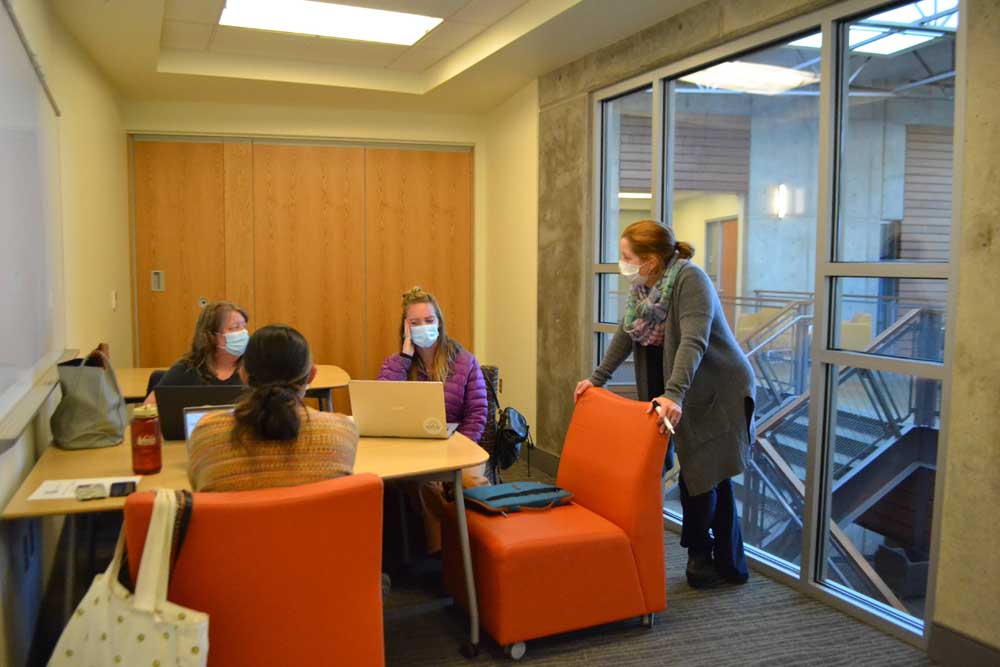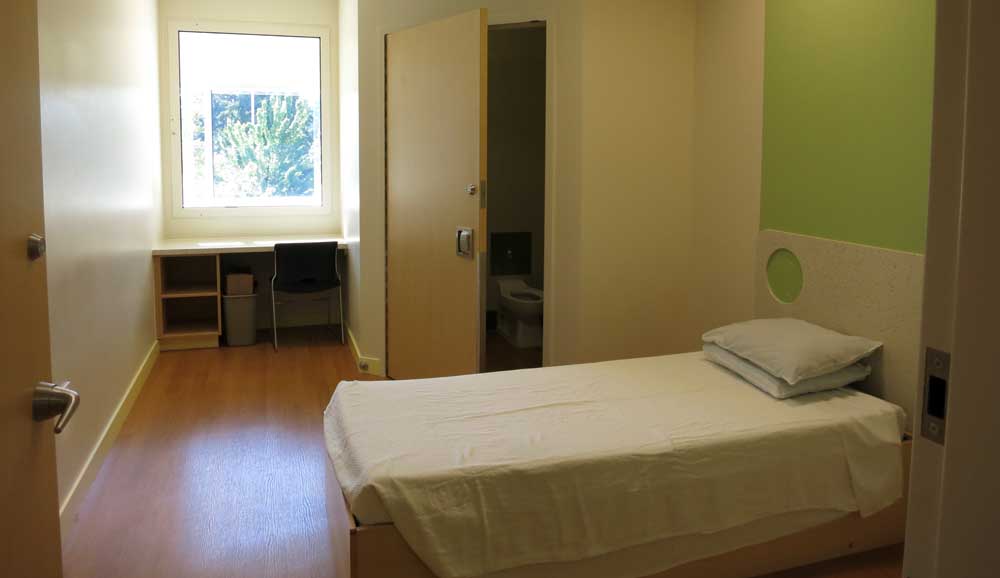COCC’s community health worker certificate opens pathways for students
Published 5:30 am Saturday, March 30, 2024

- Students receive community health worker training at Central Oregon Community College's Redmond campus during the pandemic in 2022.
This spring, Central Oregon Community College’s Madras campus will offer introductory training for the first time for people who want to become community health workers.
It’s the first step toward completing the one-year community health worker certification program, which began in Bend last fall.
Trending
OSU-Cascades lab uses biomechanics research to prevent athletic injuries
Community health workers advocate for individual and community health needs, provide translation and transportation services, help people navigate the health care system and provide informal counseling, among other services, for people who live in their communities. They often share ethnicity, socioeconomic status and life experiences with the people they serve, and are a liaison between the community and health services.
The certification program was years in the making and is one of the first programs of its kind in Oregon, said Sarah Baron, COCC’s community health program director.
“They always existed — community health workers, outreach workers — but we never had, until recently, this pathway,” she said.
Trending
“Everyone, everyone who comes from the community, can be a community health worker of lived experience.”
The upcoming Madras class has 24 spots, around half of which have already been filled, Baron said. COCC has trained 140 students in the introductory class over the past two to three years in other locations, Baron said.
“It’s a class that probably everyone in the whole health care system needs to have, because we all need to be connected to community health,” Baron said.
Community health worker as a pathway
The certification program can be completed in a year, and covers public health, psychology, fitness and more. Obtaining the community health worker certificate allows more options: People can go into the workforce, continue on to an associate degree in public health, or move into a different focus, such as paramedicine.
“It recognizes the community health worker as an actual workforce pathway, equivalent to how a nurse has their pathway,” she said. “This is a big game changer.”
Work experience and additional training count toward the certificate, and there are no prerequisites. Students can also receive financial aid.
As a project for a recent community health promotion planning class, students created a survey for Deschutes County Health Services that asked college students what they wanted from the recently launched mobile health van for COCC and Oregon State University-Cascades.
Community health workers are certified with the Oregon Health Authority, and must continue to re-certify every few years. COCC’s program hopes to attract current workers who need continuing education credits, said Baron. The health authority also uses the title “traditional healthcare worker” when referring to these public health workers.
Introducing the program, obtaining data, and gaining approval from the college, the state and the department of education, meant that the community health worker certification program took years of work to create. Other community colleges are now following in COCC’s footsteps by creating their own programs, said Baron.
Baron is looking forward to expanding the program to COCC’s Prineville campus and more rural areas. She also plans to reach out to high school students, now that the program is a true pathway.
“Madras is just the beginning,” she said.
Impact on Jefferson County public health
Baron created an advisory group of health care officials from around Central Oregon to help provide input on the curriculum.
Based on advice, the college added medical assistance courses.
Michael Baker, health services director for Jefferson County Public Health, serves on the advisory group.
He brings a community health perspective to the group, including the impact of factors like health equity and health disparities.
The community health worker certificate gives people a pathway to other specialties such as medical assistance, he said. Baker sees it as one step toward filling the gap in Jefferson County’s health worker shortage.
“Selfishly, I see this as having a double impact. It helps get individuals into the health field careers and public health in a way they didn’t think was possible,” he said.
“When you start letting the community know what those other opportunities are, then you get a better community awareness of health in general.”








